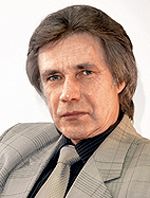Army reform
Mykola SUNHUROVSKY: The state is not ready to protect its people from external threats
It’s going to be a year since Ukraine officially became a nonaligned country, according to the adopted law “On the principles of domestic and foreign policy.” Hence, Ukraine had to develop its own self-sufficient high-tech Armed Forces. The government never stops talking about army reform. For example, recently President Viktor Yanukovych suggested that the parliament make 7,897 personnel redundant, leaving 192,000 in 2011. Another day the Minister of Defense Mykhailo Yezhel claimed that the central apparatus of his ministry will be cut by 30 percent. Does it mean that the reforms have started?
In his interview to The Day, the Director General of International Military Staff at the NATO headquarters Lieutenant-General Juergen Bornemann said: “As you know the security environment has changed and therefore the adaptation of internal structures, procedures, doctrines, and forces to these new challenges are required. This is true for Ukraine, but also for NATO member states, and therefore it is quite natural that we are in a dialogue with each other. NATO is gaining reform experience, which could be beneficial for Ukraine, but we can also learn from Ukraine about its reforms.”
What is the situation in the Ukrainian army? This was the first question The Day asked the Razumkov Center’s director for military programs Mykola SUNHUROVSKY.
“I can tell you at once that the Armed Forces are in a deplorable condition. There is no reform as of today. The current reductions are not a reform. Reform must embrace both form and content in terms of changes in the army. Today this is not the case. I have an impression that the hastily prepared documents, I mean the army development concept, are ordered by politicians. Military doctrine, for example, is barely linked to the national security strategy. Frankly speaking, when there’s no harmony and understanding in an orchestra it’s difficult to hear good music.”
Then what is the government aiming at?
“I think they simply ignore this question. Any reform requires large investments that can affect pensions and social security in general. The government has to decide on its priorities when distributing money. If state defense receives less than one percent of the budget, it’s not a priority. It means that the country is not ready to protect its people against external threats.”
What do you think about the theoretical part, the concept and the military doctrine?
“Actually, the direction of the army’s development is unclear as it changes all the time, just like a weathercock. They have to decide on something as constant changes disorientate military management and the executors of certain programs. If we have chosen to be a nonaligned country, we have to say exactly who we cooperate with and in which areas. They first announce the concept, and then it turns out that it’s necessary to go to Russia first. That is why I’m afraid that the reform of the Armed Forces won’t happen. If they learn how to do it from Russia, they’d better learn how not to do it. The Russians admit that their reforms have led to a decline of the Armed Forces and they are going to follow the Visegrad countries’ experience [Poland, Czech Republic, Slovakia, and Hungary. – Ed.]. Why should Ukraine learn from Russia if we can learn from the Visegrad Four?”
Incidentally, the joint Ukrainian-Russian naval maneuvers “Peace Fairway-2011,” on the Black sea, are currently being held.
“Holding such maneuvers has many purposes. It’s not only about maintaining operational readiness and training the Armed Forces, but also in confidence building, strengthening security in the region. That is why such maneuvers have to be held. This time the joint maneuvers with the Russian sailors are valuable on the personal level from the point of confidence building and cooperation. I doubt that they will really improve training standards, as those of the Russian Navy are far behind western ones. Russia acknowledges this and is switching to a multilateral format in cooperation with NATO members.”
Do you think Ukraine is actively cooperating with NATO at present?
“In principle, they keep up with the previous intensity. I can tell you that if we hadn’t needed to calm Russia down we wouldn’t have needed any claims about being a nonaligned country. Our cooperation is not intense enough to be able to join the Alliance, but it’s enough to maintain our partnership with it.”
If the reforms are not carried, how are we going to react to global challenges, if there are threats to Ukraine?
“This question has to be resolved pragmatically. The thing is that global threats have a specific meaning for Ukraine. If we say ‘terrorism’ let’s have a look at the sources of international terrorism in Ukraine. Are there any targets for international terrorism in Ukraine? If we say ‘drug trafficking’ let’s try to asses to what extent the Ukrainian territory has transit potential for this kind of activity. If we say that there’s a global tendency to switch to the ‘net-centric’ wars, let’s think who might Ukraine fight with in such wars, and if there is a need to pay attention to them. The same goes for other threats. We have to approach all of these issues specifically, and to determine the tasks for the Armed Forces and the structures necessary for this.”
From time to time the media speculate about Mykhailo Yezhel’s resignation. What do you think about this?
“When Mykhailo Yezhel was assigned to the position of minister of defense I said that he is not a minister who can reform the Armed Forces. As we can see, my opinion has proved to be correct. To carry out serious reforms, especially in the central apparatus where they will be seriously sabotaged, strong political will is needed. There won’t be any reforms without political will.”






